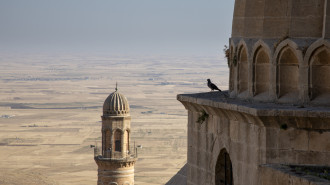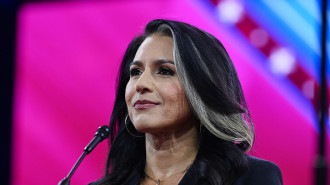UN blacklists six South Sudan commanders
The UN Security Council on Wednesday imposed sanctions on six commanders from South Sudan, the first to be blacklisted in a country where 18 months of war have brought horrific violence.
The six generals - three from the government forces and three from the rebels - were punished with a global travel ban and an assets freeze for their role in the worsening conflict.
Britain, France and the US had put forward the six names to a newly formed sanctions committee that was set up in March by the Security Council after a string of failed successive ceasefires.
From the government side, the three are: Major General Marial Chanuong Yol Mangok, commander of President Salva Kiir's presidential guard; Lieutenant General Gabriel Jok Riak, whose forces are fighting in Unity State; and Major General Santino Deng Wol, who led an offensive through Unity State in May in which children, women and old men were killed.
From the rebels, the sanctions target Major General Simon Gatwech Dual, chief of the general staff, Major General James Koang Chuol, who led attacks in Upper Nile State, and General Peter Gadet, the rebels' deputy chief of staff for operations.
"As the members of the Security Council demonstrated today, those who commit atrocities and undermine peace will face consequences," US Ambassador Samantha Power said in a statement.
Power called on both sides to "put aside their self-serving ambitions, end the fighting, and engage in negotiations to establish a transitional government."
She warned that additional sanctions could be imposed.
South Sudan has been torn by fighting since December 2013 between forces loyal to Kiir and rebels allied with his former deputy, Riek Machar, and the violence has imploded along ethnic lines.
Russia follows AU stance
 |
|
The world's newest nation is in the throes of a dire humanitarian crisis, with more than 2.5 million people facing severe food shortages and two million driven from their homes.
A recent report by the UN mission in South Sudan described horrific violence in the latest fighting in Unity state, where witnesses said the army gang-raped girls and torched them alive in huts.
At least seven ceasefires have been signed and broken during successive rounds of talks.
Among the more prominent military leaders is Mangok, the commander of the presidential guard, who oversaw the execution of ethnic Nuer civilians when fighting broke out in December 2013, according to UN documents seen by AFP.
The civilians were buried in mass graves in and around Juba.
Gatwech Dual, the rebels' chief of general staff, is cited for targeting women, children and civilians, ordering fighters under his command to "not make any distinctions between different Dinka tribes and should kill all of them."
The UN committee had set a 1900 GMT deadline for objections to be raised to the sanctions request amid some expectation that Russia and China could refuse to endorse the move.
But the deadline passed without objections, which means under UN rules that the request was approved.
Russia said it decided to back sanctions because the African Union had come out in support of the move.
"Still we consider the sanctions counterproductive as they do not contribute to the peace process," said Alexey Zaytsev, spokesman for the Russian mission.
Criticism
However, the sanctions have been criticised because they do not touch Vice President Riek Machar or President Salva Kiir Mayardit, former political allies who fell out amid a power struggle within South Sudan's ruling party.
"If the sanctions are meant to encourage the spoilers to be serious for peace, and to warn them that not doing so has a price or punishment, then they should target the right people," said Lam Akol, a prominent opposition figure, reported AFP.
The Brussels-based International Crisis Group had come out against the sanctions proposal, arguing that the six generals were not responsible for the failure to reach an agreement and warning that their support for any future deal could be jeopardised.
The U.N. sanctions are "ill-timed and ill-conceived" and could disrupt a new attempt at negotiations, said International Crisis Group earlier this week.
"They will not build greater support for an improved peace process," the group said.
Fighting has escalated recently, with the government on the offensive in Unity state and rebels launching attacks in Upper Nile state.
The international community has urged Kiir and Machar to put aside their personal ambitions and reach a political settlement.







 Follow the Middle East's top stories in English at The New Arab on Google News
Follow the Middle East's top stories in English at The New Arab on Google News
![Israel demolished homes in the Silwan area [Getty]](/sites/default/files/styles/image_330x185/public/2024-11/GettyImages-2183868368.jpg?h=199d8c1f&itok=TweR8vd0)

